Solar System: 5 Things To Know This Week
Solar System: 5 Things To Know This Week
Our solar system is huge, so let us break it down for you. Here are 5 things to know this week:
1. You Call the Shots

This July, when the Juno mission arrives at Jupiter, it will eye the massive planet with JunoCam. What adds extra interest to this mission is that the public is invited to help Juno scientists choose which images JunoCam will take. Now is the time to get involved.
2. Dawn Delivers

We’ve seen several images now from the Dawn spacecraft’s new, close orbit around Ceres—and they don’t disappoint. Exquisitely detailed photos of the dwarf planet reveal craters, cliffs, fractures, canyons and bright spots in many locations. “Everywhere we look in these new low-altitude observations, we see amazing landforms that speak to the unique character of this most amazing world,” said the mission’s principal investigator.
3. Remembering the Visit to a Sideways World

Jan. 24 is the 30th anniversary of Voyager 2’s Uranus flyby. The seventh planet is notable for the extreme tilt of its axis, its lacy ring system and its large family of moons—10 of which were discovered thanks to Voyager’s close encounter. In fact, we learned much of what we know about the Uranian system during those few days in 1986.
4. A Decade in the Deep

The New Horizons spacecraft left Earth 10 years ago this week. Its long voyage into deep space is, even now, transforming our understanding of the outer solar system. New data and pictures from the Pluto flyby are still streaming down from the spacecraft. Pending the approval of an extended mission, New Horizons is en route to a 2019 rendezvous with a small, unexplored world in the distant Kuiper Belt.
5. Power at a Distance

Space exploration helped drive the development of practical solar cells, and now solar power has gone farther than ever before. Last week, NASA’s Juno spacecraft broke the record for the most distant solar-powered craft when it passed a distance of 493 million miles (793 million kilometers) from the sun. The four-ton Juno spacecraft draws energy from three 30-foot-long (9-meter) solar arrays festooned with 18,698 individual cells.
Want to learn more? Read our full list of the 10 things to know this week about the solar system HERE.
Make sure to follow us on Tumblr for your regular dose of space: http://nasa.tumblr.com
More Posts from Alitheastronomer and Others

New Horizons image of Jupiter and Io
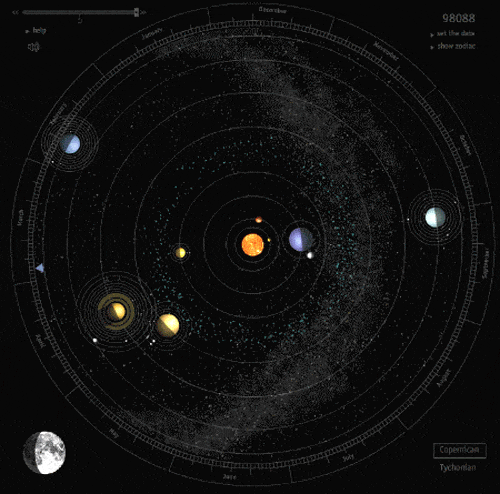
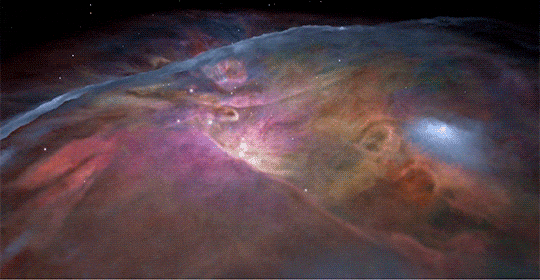
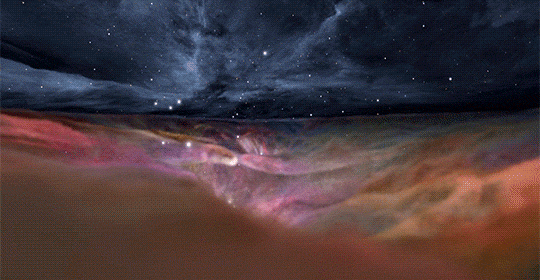



Flying Across The Universe Part 3 (From Top to Bottom: Fly through the Orion Nebula, Gum 29, and Sharpless 2-106)
(Part 1, Part 2)
Credit: HubbleSite.org
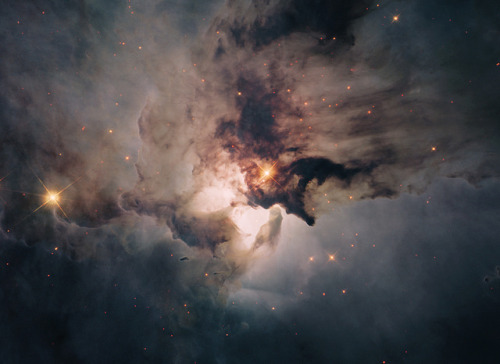
Well you're not wrong
true space facts
if u look up there it is









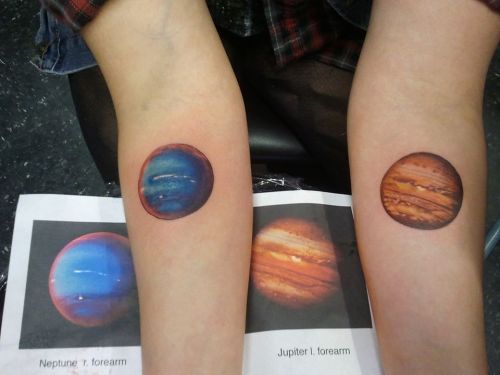

Observatory in the path of an airport is rough on star trails haha










Striking views of our Solar System
Otherworlds: Visions of our Solar System can be seen at the Natural History Museum, London, from 22 January - 15 May 2016.
All credits on the link above






Sharpest View of the Andromeda Galaxy, Ever.
The NASA/ESA Hubble Space Telescope has captured the sharpest and biggest image ever taken of the Andromeda galaxy — a whopping 69,536 x 22,230 pixels. The enormous image is the biggest Hubble image ever released and shows over 100 million stars and thousands of star clusters embedded in a section of the galaxy’s pancake-shaped disc stretching across over 40,000 light-years.
Use the ZOOM TOOL to view in full detail.
(WARNING: May cause existential crisis)
-
 starrynightings-blog liked this · 4 years ago
starrynightings-blog liked this · 4 years ago -
 stanheisenberg2020 reblogged this · 5 years ago
stanheisenberg2020 reblogged this · 5 years ago -
 cliffsteele reblogged this · 6 years ago
cliffsteele reblogged this · 6 years ago -
 00z04 liked this · 6 years ago
00z04 liked this · 6 years ago -
 scullys-alienkitty liked this · 6 years ago
scullys-alienkitty liked this · 6 years ago -
 hendrixsuun reblogged this · 6 years ago
hendrixsuun reblogged this · 6 years ago -
 favethebatgirl reblogged this · 6 years ago
favethebatgirl reblogged this · 6 years ago -
 favethebatgirl liked this · 6 years ago
favethebatgirl liked this · 6 years ago -
 sonicsoundscapes liked this · 6 years ago
sonicsoundscapes liked this · 6 years ago -
 my-phire liked this · 6 years ago
my-phire liked this · 6 years ago -
 ahktenire liked this · 8 years ago
ahktenire liked this · 8 years ago -
 actualscienceside reblogged this · 8 years ago
actualscienceside reblogged this · 8 years ago -
 darkspellmaster liked this · 8 years ago
darkspellmaster liked this · 8 years ago -
 breaking-like-the-dawn liked this · 8 years ago
breaking-like-the-dawn liked this · 8 years ago -
 mamapluto liked this · 9 years ago
mamapluto liked this · 9 years ago -
 sunshines96 liked this · 9 years ago
sunshines96 liked this · 9 years ago -
 wanda-maximoff18-blog liked this · 9 years ago
wanda-maximoff18-blog liked this · 9 years ago -
 nanauii reblogged this · 9 years ago
nanauii reblogged this · 9 years ago -
 habstein reblogged this · 9 years ago
habstein reblogged this · 9 years ago -
 greyhawkdragon liked this · 9 years ago
greyhawkdragon liked this · 9 years ago -
 justanotherskapunkkid liked this · 9 years ago
justanotherskapunkkid liked this · 9 years ago -
 fuzzyangrybird reblogged this · 9 years ago
fuzzyangrybird reblogged this · 9 years ago -
 beyond-babe reblogged this · 9 years ago
beyond-babe reblogged this · 9 years ago -
 pixiiebutt liked this · 9 years ago
pixiiebutt liked this · 9 years ago -
 theravenofwynter reblogged this · 9 years ago
theravenofwynter reblogged this · 9 years ago -
 velvety-wings liked this · 9 years ago
velvety-wings liked this · 9 years ago -
 frozencat123 liked this · 9 years ago
frozencat123 liked this · 9 years ago -
 gabalas reblogged this · 9 years ago
gabalas reblogged this · 9 years ago -
 astraldemise liked this · 9 years ago
astraldemise liked this · 9 years ago -
 krustykrack liked this · 9 years ago
krustykrack liked this · 9 years ago -
 commanderauri reblogged this · 9 years ago
commanderauri reblogged this · 9 years ago -
 commanderauri liked this · 9 years ago
commanderauri liked this · 9 years ago -
 attackoffandoms reblogged this · 9 years ago
attackoffandoms reblogged this · 9 years ago -
 attackoffandoms liked this · 9 years ago
attackoffandoms liked this · 9 years ago -
 applezah-blog liked this · 9 years ago
applezah-blog liked this · 9 years ago